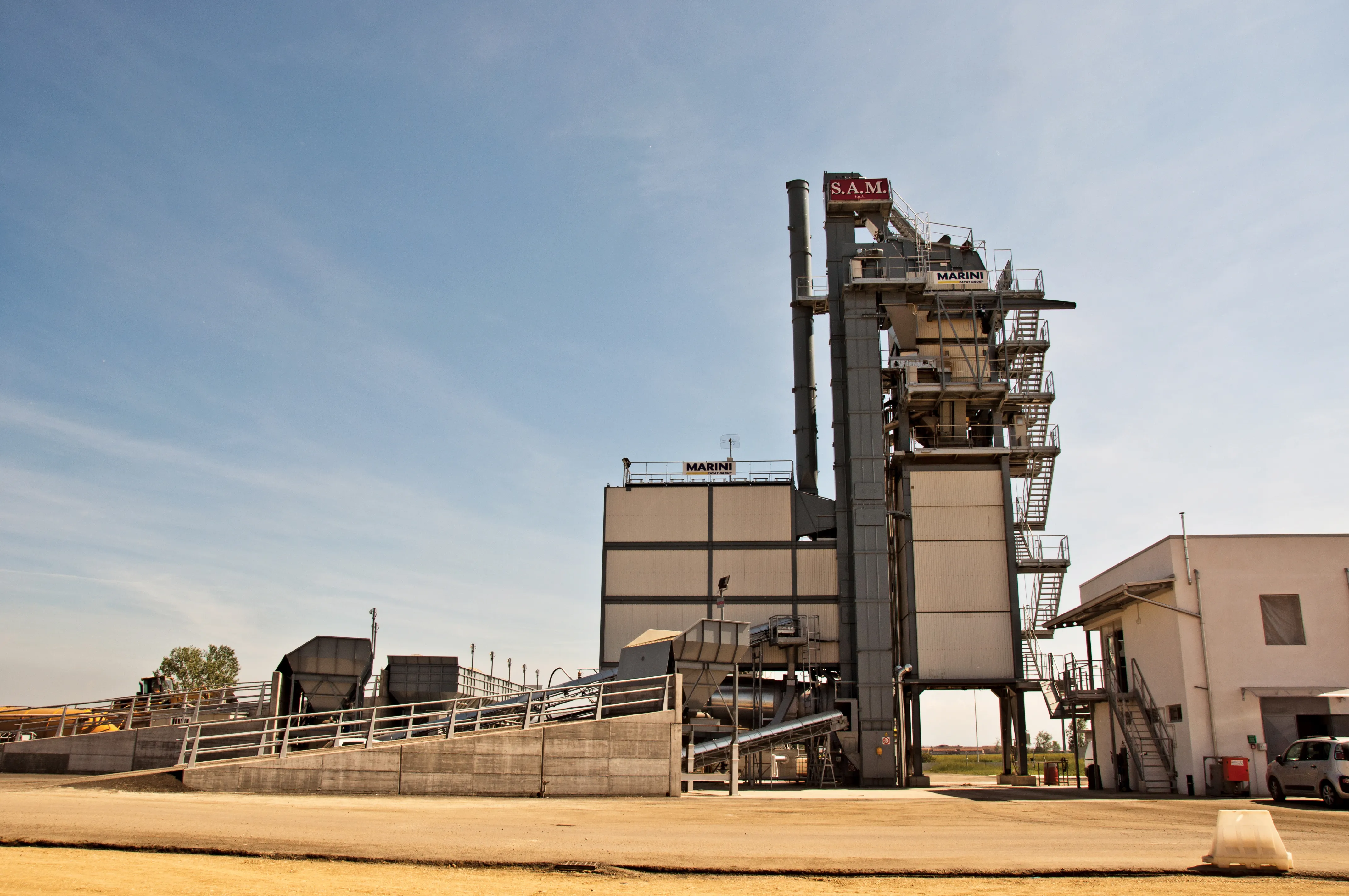
Iterchimica’s Gipave additive, containing graphene and recycled plastic, is under trial in Kent as part of a UK-wide Live Labs programme to accelerate the adoption of new technologies and materials.
The two-year programme is being overseen by the Association of Directors of Environment, Economy, Planning and Transport (ADEPT) which represents directors from local authorities in the UK and funded by the Department for Transport. Technologies under trial involve communications, materials, energy solutions and mobility.
“We want to test a lot of different innovations quickly and at scale and, importantly, collect the evidence as to how things perform from an engineering and programme point of view but also from a business case perspective,” said Giles Perkins, ADEPT SMART Places Live Labs programme director and head of future mobility at WSP, one of the private partners involved in the programme.
Contractor Amey laid asphalt containing the Gipave additive on a 350m-long stretch of main road in Dartford in Kent in June 2020, alongside a 350m-long section paved with traditional asphalt. The two sections of pavement will be closely monitored and tested to compare durability and performance.
Additive specialist Iterchimica worked with graphene supplier Directa Plus, the University of Milano Biocca and waste specialist G.Eco to create Gipave, which is made up of three components: technically selected waste plastics, an active compound made of additives from Iterchimica and G+ graphene. The waste plastics used are hard plastics which cannot currently be recycled and therefore usually end up in energy-to-waste plants.
“We are proud of working together with Kent County Council and Amey on this trial, which allows us to assess the effectiveness of graphene-enhanced asphalt pavements,” says Federica Giannattasio, CEO of Iterchimica, who has had a strong focus on the ‘green’ agenda for several years. “Starting from this year, the new manufacturing plant allows us to begin selling a product that achieves the goals set out by the Green and Circular Economy, as well as those related to the UN Sustainable Development and the Paris Climate Agreement (2015).

Based on laboratory tests and trials in its native country of Italy, Iterchimica has estimated that Gipave will enhance the life of a road by at least a further 50%. This would mean that the capital and carbon costs of maintenance and materials would be reduced over a road’s lifetime.
“Using this technology as part of our maintenance programmes could see us create more durable asphalt that could improve customer safety, the lifespan of our roads, as well as reducing impacts on journey time which brings with it many environmental and carbon reduction benefits,” said David Ogden, Amey’s business director.
Gipave has already been laid on runways at Fiumicino and Cagliari Airports and on the SP03 Via Ardeatina in Rome and Milano-Meda, near Milan. Late last year, Skanska laid a trial stretch in the UK in Oxfordshire and is in discussion with Highways England about its use on the M25 motorway which circles London.
There are several other highway-based technologies under trial as part of the ADEPT Live Labs programme, which involves eight UK authorities working in partnership with private companies and academic institutions. These include the use of recycled plastics in road surfacing in Cumbria: energy generation from highways assets in Central Bedfordshire; and using road-based sensors, connected by IoT, to improve the performance of networks in Kent.
Although Kent’s project pitch for funding was focussed on smart asset management technology, Perkins says that the programme is encouraging participants to try other new technologies – which is where the Gipave trial comes in. “There are innovations that come as a result of the Live Labs programme that are second-wave innovations,” he said. “The whole purpose is to encourage innovations across the piece. It’s as much about changing the mindset of how local authorities and their partners approach innovation.
“Failure can be beneficial. If somebody does something and it’s not successful but the learning is collected in such a way that it can be communicated quickly, the wider benefits could far outweigh the cost of learning.”
Coronavirus impacts: pricing
The impact of the Coronavirus pandemic on bitumen prices provides more evidence that bitumen should have its own pricing mechanism, according to commodity price reporting agency Argus. The price of crude oil slumped dramatically from March, initially due to price wars between Russia and Saudi Arabia and then due to a sudden fall in demand due to Coronavirus. The price of high sulphur fuel oil (HSFO) – to which bitumen pricing has traditionally been linked - fell dramatically at the end of 2019, due to changes in shipping law which have reduced the allowable sulphur content in marine fuels. Unexpectedly, the price of HSFO rose from January, due to a variety of factors, but is unlikely to remain stable, says Argus.
The price of bitumen fell as the Coronavirus took hold, but by far less than those of oil or HSFO, and then levelled off. This reflects the fact that many construction projects around the world continued to operate as Governments strove to prop up GDP and keep some movement in their economies.
“Bitumen price is pretty widely disconnected from both of those markers,” says Jonathan Weston, editor of Argus’ bitumen report in a webinar, European bitumen trade flows and price dynamics, in June.
Argus argues that rather than pricing bitumen in relation to other commodities, bitumen price indices, such as those run by Argus, are more practical. In January it launched its Argus FOB Mediterranean bitumen price index which takes into account deals and exports from the region. Europe still exports around 4m tonnes of bitumen/year. Although some refineries have stopped producing bitumen altogether, in favour of higher-priced products, others have taken up the slack by focussing on bitumen. Greece, Spain and Italy are the biggest exporters, each exporting around 1 million tonnes a year, although Turkey’s exports have increased in the last 12 months.
Longer term there could be more impacts from Coronavirus on bitumen pricing and movements around the world. “We have seen export volumes starting to shrink and believe domestic demands are being prioritised over exports,” said Weston.









